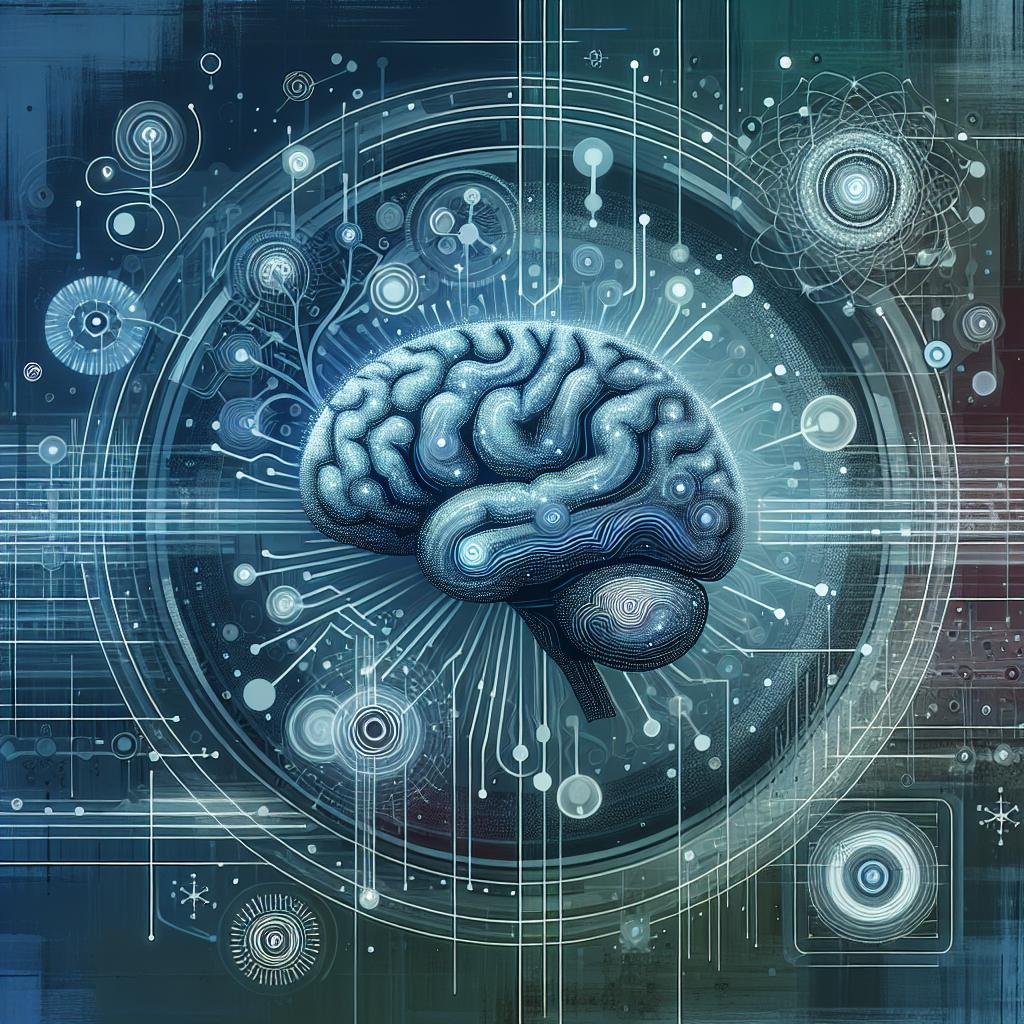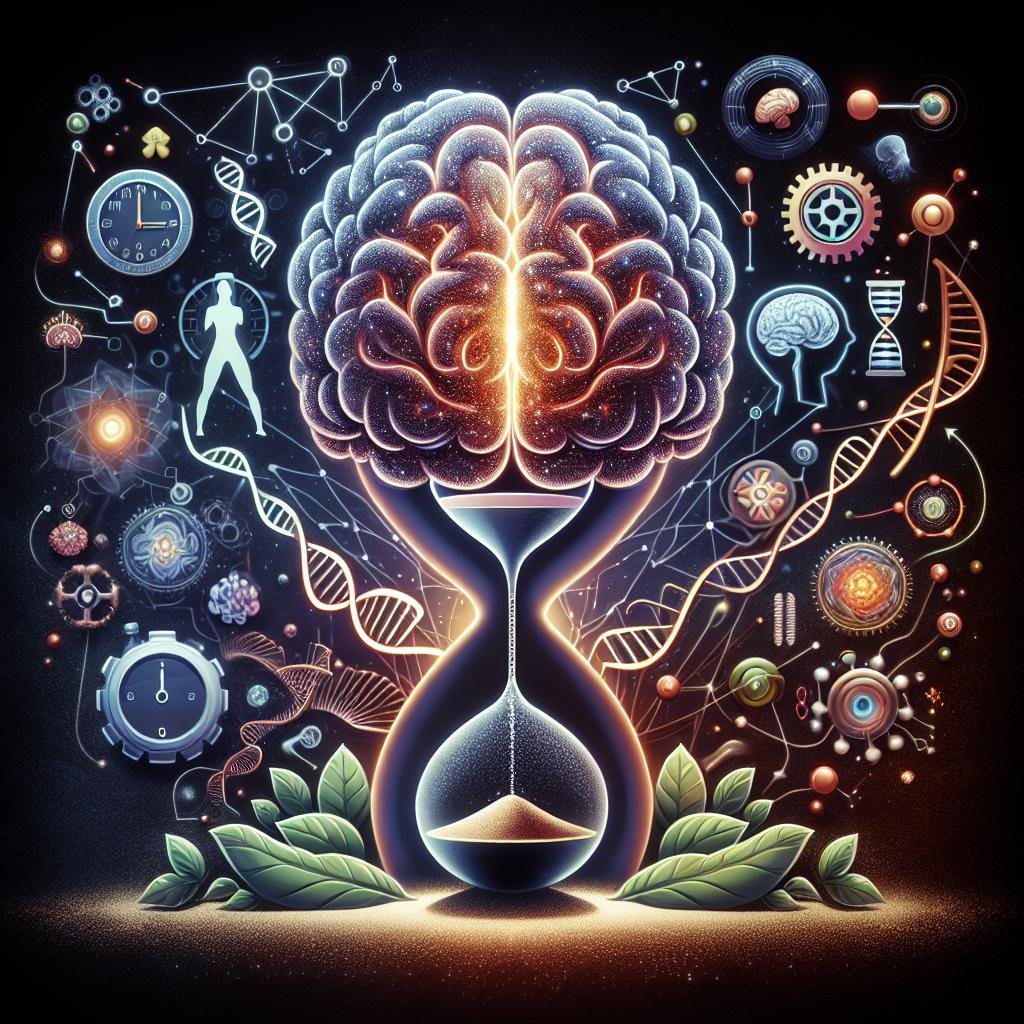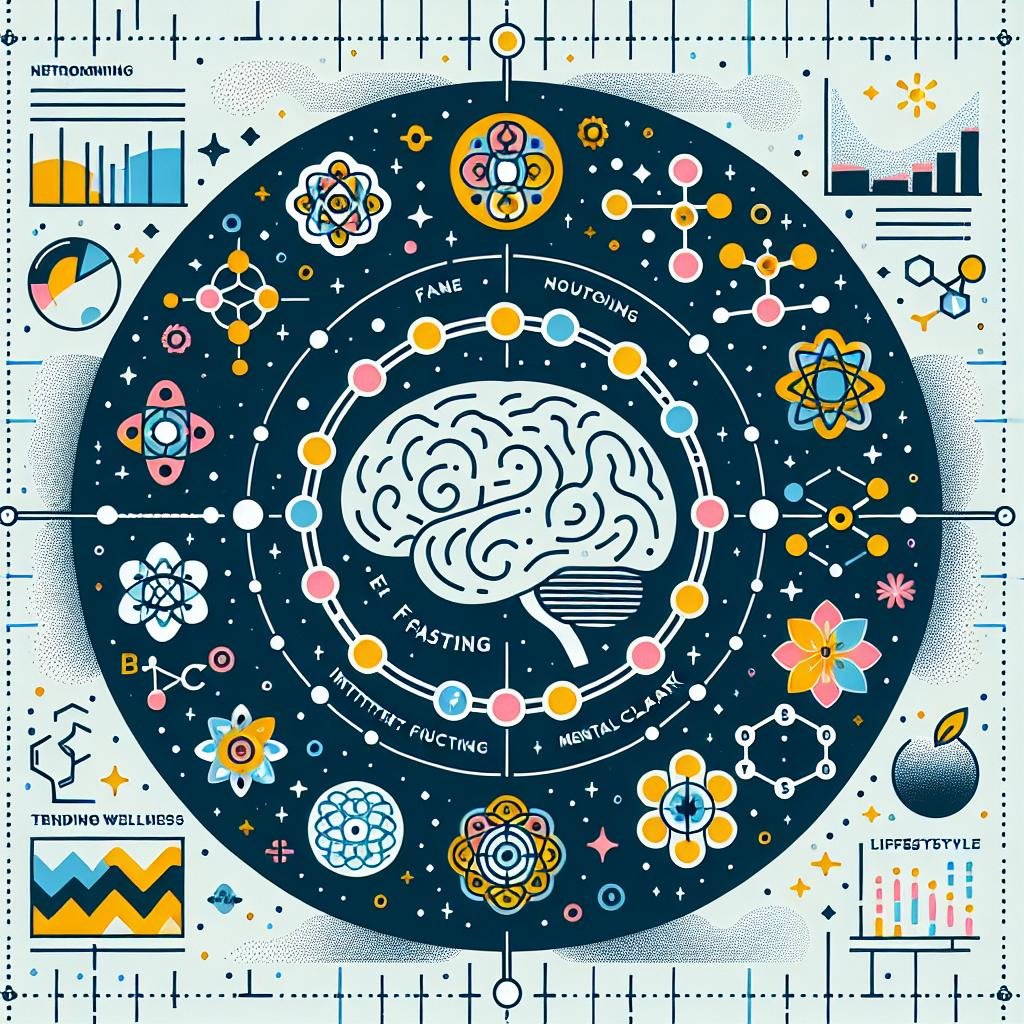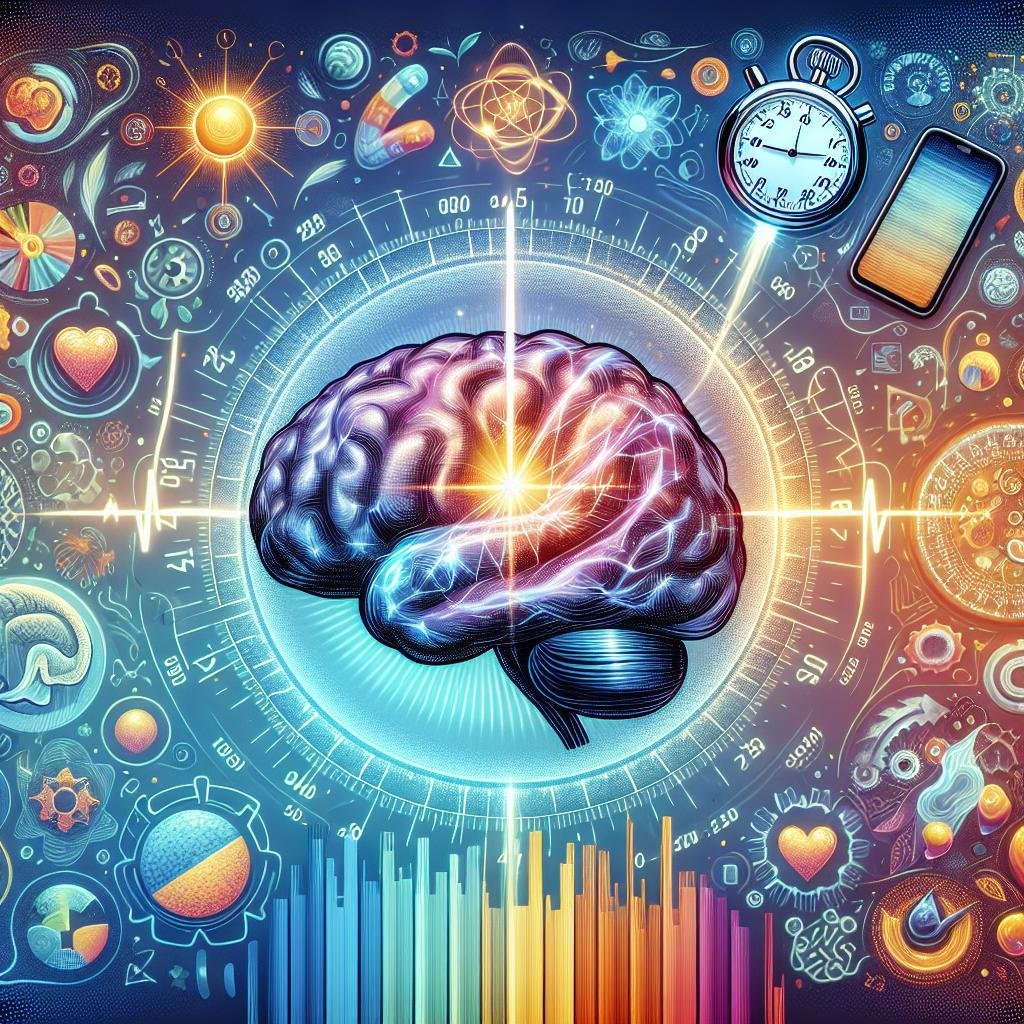In the bustling landscape of modern wellness, where trends ebb and flow like the tides, intermittent fasting has emerged as a beacon of intrigue. This dietary approach, once cloaked in the shadows of obscure ancient practices, has captured the attention of health enthusiasts, scientists, and everyday individuals alike. But its allure extends beyond the physical realm, steering us into the depths of cognitive enhancement and mental acuity. As researchers unravel the complexities of our brain and its response to fasting, a compelling narrative unfolds—one that intertwines nutrition, neurobiology, and the quest for clarity in a world inundated with distractions. In this article, we delve into the fascinating interplay between intermittent fasting and brain function, exploring how periods of intentional abstinence from food may not only recalibrate our bodies but also sharpen our minds. Join us as we examine the growing body of evidence that suggests fasting might just be the key to unlocking a sharper, more focused intellect.
Exploring the Science Behind Intermittent Fasting and Cognitive Enhancement
Intermittent fasting (IF) has garnered immense popularity not just for its effects on physical health, but also for its potential to enhance cognitive function. Research indicates that periods of fasting may trigger a cascade of metabolic changes that positively influence brain health. When the body is in a fasted state, it initiates a process called autophagy, which helps clear out damaged cells and promotes cellular repair. This physiological response is believed to result in increased levels of brain-derived neurotrophic factor (BDNF), a protein crucial for long-term memory and learning capabilities. Moreover, fasting can lead to the production of ketones—an alternative energy source for the brain—enhancing its efficiency and clarity of thought.
Furthermore, the relationship between intermittent fasting and mental clarity can be attributed to several key mechanisms:
- Reduced Inflammation: Fasting lowers inflammatory markers, which can help protect neural pathways.
- Improved Insulin Sensitivity: Enhanced insulin sensitivity supports stable blood sugar levels, reducing cognitive fog.
- Hormonal Changes: Increased norepinephrine levels during fasting can boost alertness and attention.
To illustrate these effects, consider the following table that summarizes findings from recent studies on cognitive benefits associated with intermittent fasting:
| Study | Outcome | Duration of Fasting |
|---|---|---|
| Study A | Improved memory recall | 16 hours |
| Study B | Enhanced focus and attention | 14 hours |
| Study C | Increased BDNF levels | 24 hours |

Unlocking Mental Clarity: How Fasting Influences Neurotransmitter Activity
The phenomenon of fasting does more than just challenge the body; it profoundly shapes brain function through its effects on neurotransmitter activity. When we refrain from consuming food for specific periods, the brain enters a unique metabolic state, leading to the increased production of critical neurotransmitters like serotonin and dopamine. These chemicals play a vital role in mood regulation, cognitive functions, and overall mental clarity. The resulting neurochemical shift can enhance focus, improve memory retention, and promote emotional well-being, making fasting an intriguing practice for anyone seeking a mental edge.
Moreover, fasting triggers a process known as autophagy, which helps clear away damaged cells and proteins in the brain. This rejuvenation process is essential for maintaining optimal brain function. The table below summarizes key neurotransmitters affected by fasting and their respective roles:
| Neurotransmitter | Role in the Brain |
|---|---|
| Serotonin | Regulates mood and anxiety |
| Dopamine | Involved in reward and motivation |
| GABA | Promotes relaxation and calmness |
| Norepinephrine | Enhances focus and alertness |
In essence, intermittent fasting acts as a catalyst for enhancing neurotransmitter pathways, fostering a greater sense of mental clarity. This not only uplifts mood but also sharpens cognitive performance, inviting individuals to explore fasting as a means to unlock their brain’s potential.

Practical Strategies for Incorporating Intermittent Fasting to Boost Focus
Incorporating intermittent fasting into your daily routine can be a game-changer for enhancing focus and productivity. Start by selecting a fasting window that suits your lifestyle, such as a 16/8 approach where you fast for 16 hours and eat within an 8-hour period. During your eating window, prioritize nutrient-dense foods that support cognitive function, like leafy greens, fatty fish, nuts, and berries. Additionally, stay hydrated with water, herbal teas, or black coffee during the fasting hours; proper hydration can significantly boost concentration and mental clarity.
To maximize the benefits of intermittent fasting, consider some practical techniques:
- Plan your meals: Prepare balanced meals ahead of time to avoid impulsive eating that can lead to poor food choices.
- Set reminders: Use apps or alarms to remind you of your eating and fasting periods, helping you stay on track.
- Incorporate a mindfulness practice: Engaging in meditation or deep-breathing exercises during fasting hours can enhance mental focus and resilience.
- Listen to your body: Adjust your fasting schedule based on your energy levels and focus; it’s important to find a balance that works for you.

Navigating Potential Challenges: Balancing Fasting and Optimal Brain Health
While intermittent fasting can offer significant benefits for mental clarity and cognitive function, there are challenges that individuals may face when integrating this practice into their lifestyle. It’s essential to be aware of potential issues such as hunger, energy fluctuations, and distracted focus during fasting periods. These challenges can impact productivity and overall brain performance. To mitigate these effects, consider implementing the following strategies:
- Stay Hydrated: Drinking plenty of water can curb hunger and improve concentration.
- Choose Nutrient-Dense Meals: Opt for foods rich in omega-3 fatty acids and antioxidants to support brain health during eating windows.
- Listen to Your Body: Pay attention to your energy levels and adjust fasting times as necessary.
It’s also beneficial to create a supportive environment that fosters optimal brain function. Structuring your day to avoid high-stress triggers can significantly enhance the effectiveness of fasting on mental clarity. Engaging in activities such as mindfulness, light exercise, and creative hobbies can help maintain a balance. Below is a simple overview of activities that can enhance brain health during fasting:
| Activity | Benefits |
|---|---|
| Mindfulness Meditation | Improves focus and reduces stress |
| Light Aerobic Exercise | Boosts circulation and energy levels |
| Creative Hobbies | Stimulates brain function and expression |
In Retrospect
As we bid farewell to our exploration of intermittent fasting and its effects on brain function and mental clarity, it’s clear that this age-old practice holds more than just promises of physical health. From enhanced cognitive performance to improved focus, the potential benefits are intriguing and warrant further investigation.
Yet, like any dietary strategy, it is essential to remember that individual responses can vary. The journey towards optimal brain health isn’t solely paved by fasting windows; a holistic approach—including balanced nutrition, regular exercise, and mindful habits—plays an equally crucial role.
As we continue to navigate the complexities of our minds and bodies, intermittent fasting remains a compelling area of study. Whether you’re seeking sharper focus for work, clearer thinking for creativity, or simply a way to reconnect with your body’s rhythms, the evidence suggests that this practice might just have a place in your wellness toolkit.
For those eager to delve deeper, the world of neuroscience and nutritional science promises more discoveries on the horizon. Ultimately, the quest for clarity—both mental and physical—continues, offering pathways to a more profound understanding of ourselves and the methods that enhance our cognitive landscapes.

